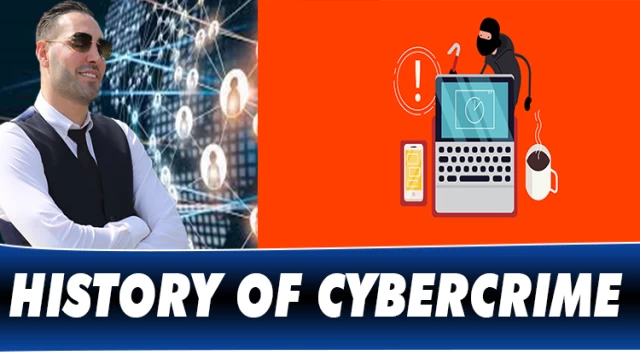Cybercrime has taken an increasing role in public and media debates, under the dual impact of the accessibility of the Internet to new communities and the globalization of stock markets in particular.
Therefore, the phenomenon of cybercrime is no longer limited to isolated, anecdotal or extraordinary acts. Cybercrime is now considered a major security risk by most experts.
However, this question of expertise is rarely asked, and this lack of critical distance is at least anachronistic if we judge by the media significance of the phenomenon.
Therefore, this article will focus on raising issues related to expertise in cybercrime, in particular, based on the example of counterfeiting of physical products, which allows us to support our thinking in a designated region.

Indeed, the discourse on counterfeiting is older and sheds light on cybercrime in a more accessible way. The falsification of physical media ultimately highlights the tensions that exist between the real world and the expertise of the virtual world.
First, we will consider the extent to which most specializations in cybercrime pose a problem. Next, we will see how these specializations relate to the problem of framing the phenomenon and the social construction of risk. Finally, we will suggest some ways to develop that expertise.
Current State of Specialization Practice
First of all, it should be noted that cybercrime is a new concept and therefore experts in this field necessarily have limited experience.
However, the same experts play an important role in the analysis of this emerging phenomenon, especially since cybercrime can be likened to different concepts.
Three issues are particularly strategic for understanding this expertise issue:
- the problem of sources of studies,
- the importance of the legal system and
- little presence of relevant academic research or think tanks.
Most studies or reports on the phenomenon of combating cybercrime come from two main sources, one from the private sector and the other from the corporate sector.
Within the private sector, we can distinguish between the work of companies directly involved in the security of information systems and the work of Internet monitoring companies that are more focused on fraud-related aspects.
Such work may be carried out for temporary assignments in a confidential environment or in a public setting. Therefore, they create obscure advertisements for the companies that publish them.
While some studies appear to have credibility in terms of analysis, it is still difficult to verify the sources of their research.
The fact that there are more global statistics from software developers poses more of a problem as they are positioned as semi-official analyzes of the cybercrime phenomenon and are often treated as such by the media.
In the corporate sector, reports on information system security are published from time to time. Published studies that do not address the case of fraud remain subject to a bureaucratic weight that cannot guarantee the academic quality expected for such studies.

As for the supremacy of the legal system, the point here is not to question the importance of law as a tool both in the definition of cybercrime and in aiding repression. However, it should be noted that some jurists position themselves as follows.
We can seriously hypothesize the takeover of the legal sector in the cybercrime market, which will have the effect of creating an increased complexity of the law in this area.
This takeover occurs with the aim of creating and maintaining legal expertise rental situations rather than launching an effective fight.
CYBER DEFENSE
The concept of cyber-warrior emerged in the 1990s. We see this mentioned in articles published in the "Air and Space Power Journal" in 1996.
The term cyber warrior reflects the concept of information operations warriors as well as information warriors.
The first is associated with cyber warfare, the second with information warfare, the third with information operations, and the last with psychological warfare.
The phrase digital warriors are more rarely used. The cyber warrior figure, first of all, is reminiscent of the warrior who, in its most common definition, fights or enjoys war, is turned towards it, is warlike or inclined to war.
This formula is intended to remind us that the spectrum of actors in conflict, especially war, in cyberspace has expanded significantly. Ordinary citizen can participate in wars from his home, computer or mobile phone, play an important role.
Actors, often forcefully, attack the interests and sovereignty of States. In this context, States are trying to seize control, dominate cyberspace and thus obtain the necessary tools for conflict.
States create civil or military cybersecurity and cyber defense structures. To ensure this, it hires the best experts in their fields, if possible.
Cyber wars have the ability to defend vital infrastructures, sensitive networks, military, as well as develop a new arsenal of cyber warfare and conduct real combat in this new space. Therefore, cyber warriors do not have a single profile.
Dr.Yaşam Ayavefe




























Yorum Yazın